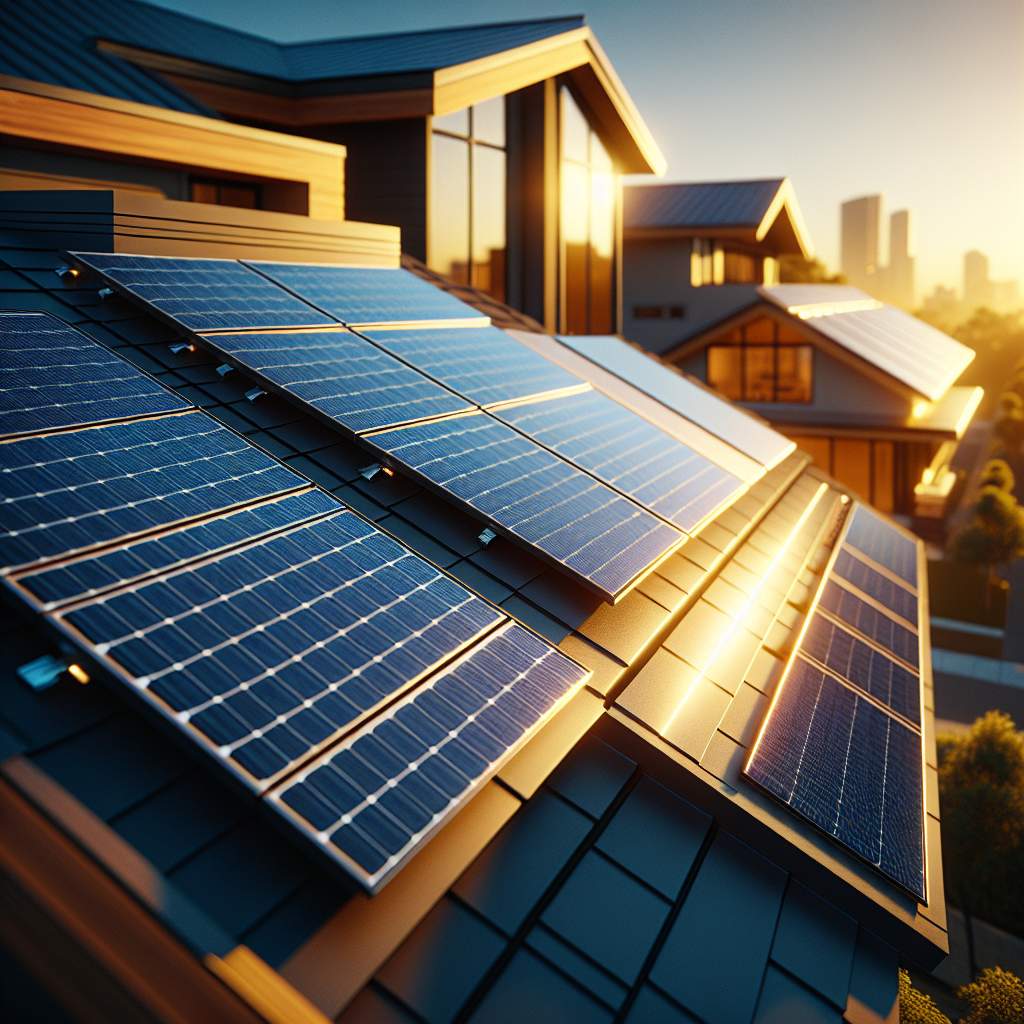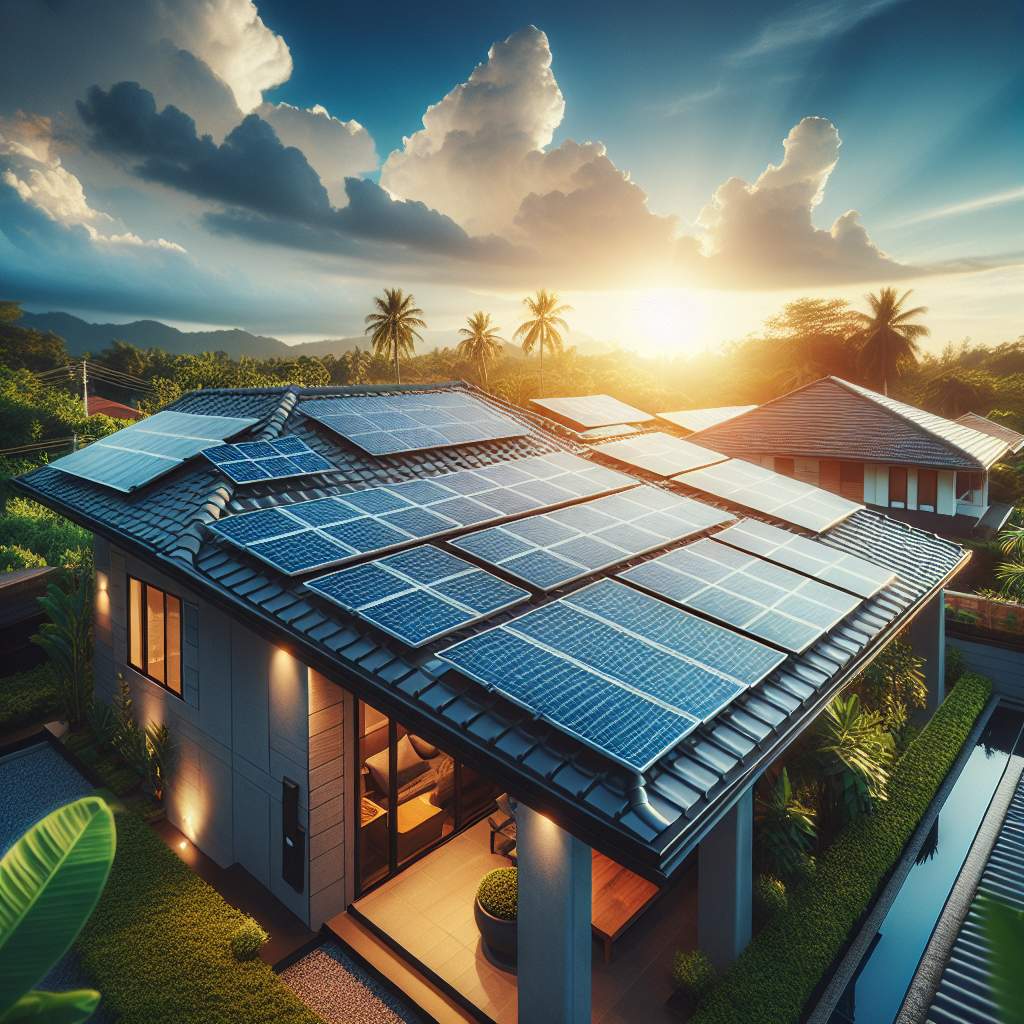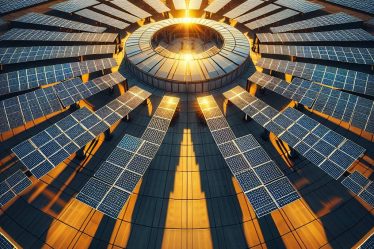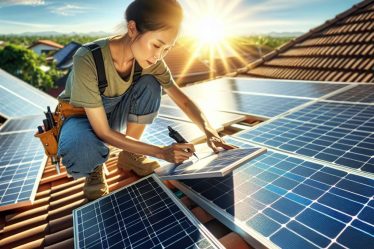
Looking to harness the power of the sun and save on those pesky electricity bills? Choosing the right solar panels for your home is a game-changer! Whether you’re a green energy enthusiast or just want to cut costs, understanding the ins and outs of solar panel technology is crucial. From assessing your home’s unique energy needs to evaluating different types of solar panels, we’ve got you covered. But wait, there’s more! We’ll also dive into choosing the right solar panel installer, financial considerations, incentives, and how to maintain these bad boys for the long haul. Let’s shed some light on this sunny topic!
Understanding solar panel technology
When it comes to powering your home with solar panels, there are a few key things to consider. First off, understanding the technology behind solar panels is crucial. Solar panels are made up of photovoltaic cells that convert sunlight into electricity. These cells are usually made from silicon, which is a semiconductor that can conduct electricity when exposed to light. The more sunlight that hits the cells, the more electricity they produce, making them an efficient and eco-friendly choice for homeowners.
Choosing the right solar panel for your home involves considering factors like efficiency, durability, and cost-effectiveness. High-quality solar panels may have a higher upfront cost but can generate more electricity over time, ultimately saving you money in the long run. Additionally, it’s important to assess your home’s energy needs and available space for installation to determine the optimal size and type of solar panel system for your property.
Lastly, it’s essential to consult with reputable solar energy professionals who can provide guidance on selecting and installing the best solar panels for your specific needs.
Assessing your home’s energy needs
Figuring out how much power your crib needs is the first step in getting those solar panels poppin’. Scope out your monthly electricity bill to get an idea of how much juice you’re using. Check for any killer appliances that are sucking up more energy than they should be. A home energy audit could also help pinpoint where you’re losing power and coin. Factoring in future changes like adding a hot tub or electric car is key, so you don’t end up short on power down the track.
When sizing up them solar panels, consider the amount of sunlight hitting your pad throughout the year. If you living large in sunny Queensland, then soaking up the rays won’t be an issue. However, if you’re chilling down south where it’s shadier, you may need a few extra panels to get the same bang for your buck.
Evaluating different types of solar panels
When evaluating different types of solar panels, it’s essential to consider the energy efficiency, cost, and durability. Monocrystalline panels are known for their high efficiency and sleek appearance. On the other hand, polycrystalline panels are more affordable but slightly less efficient. Thin-film solar panels offer flexibility and are lightweight, making them suitable for certain installations.
Durability is another crucial factor to consider when choosing solar panels for your home. Look for panels with a strong warranty and a proven track record of performance in various weather conditions.
In addition to efficiency and durability, it’s important to compare the upfront cost and long-term savings of different solar panel options. While monocrystalline panels may have a higher initial investment, they often provide greater energy production over time, resulting in significant savings on electricity bills.
The decision on which type of solar panel to choose will depend on your specific needs and budget.
Choosing the right solar panel installer

When deciding on a solar panel installer, it’s crucial to do your homework. Start by asking for recommendations from friends and family who’ve already made the switch to solar energy. Look for certifications, such as NABCEP, which can indicate a high level of expertise. Additionally, check online reviews and ratings to get a sense of customer satisfaction.
Don’t forget to inquire about warranties and after-sales service. A reliable installer should offer solid warranty coverage for both the panels and the installation work. Lastly, get quotes from multiple installers to compare prices and services offered. It’s important not to rush this decision – take your time and make sure you feel confident in your choice before moving forward with the installation process.
Choosing the right solar panel installer involves thorough research into certifications, customer feedback, warranties, and pricing.
Financial considerations and incentives
When it comes to getting solar panels for your crib, moolah matters. The upfront costs can be a bit steep, but don’t sweat it – there are some sweet financial incentives out there to help ease the strain on your wallet. For starters, check if you’re eligible for any rebates or tax credits in your area. Some local governments and utilities offer cash back or discounts when you go green with solar power. On top of that, the federal government might chip in with a tax credit that could cover up to 26% of your installation costs (e.g., Federal Solar Tax Credit). Plus, once those panels are up and running, you’ll start seeing some serious savings on your energy bills.
Another thing to consider is hooking up with a good financing plan. Some solar companies offer options where you can lease the panels or sign up for a power purchase agreement (PPA), so you can get all set up without dropping big bucks upfront (e.g., Solar Lease vs PPA). And hey, don’t forget about the boost these bad boys give to your home’s resale value – buyers dig eco-friendly homes with lower utility bills! So while there’s no denying that going solar involves some cash flow considerations upfront (e.g., Financial Considerations for Solar Panels), with all these money moves and incentives in play, it’s looking like a pretty smart investment overall!
Maintenance and longevity of solar panels
When it comes to keeping your solar panels in tip-top shape, regular maintenance is key. This means giving them a good scrub every so often to clear off any dirt or dust that might be blocking the sunlight. It’s like giving your car a wash – keeps everything running smoothly! You’ll also want to keep an eye out for any pesky leaves or branches that might be shading your panels, ’cause they need all the sunshine they can get. And hey, don’t forget about those rainy days – nature’s way of giving your solar panels a free rinse!
Now, let’s talk longevity. When you invest in quality solar panels, you’re setting yourself up for years of energy-saving goodness. Top-notch panels can last 25 years or more – that’s like having a reliable friend who always has your back! Plus, most manufacturers offer solid warranties because they believe in their product’s durability. The bottom line?
FAQ
What are the key factors to consider when choosing solar panels for my home?
When choosing solar panels for your home, consider factors such as efficiency, durability, warranty, and cost.
How do I determine the right size of solar panel system for my home?
The size of the solar panel system you need depends on your energy consumption, available roof space, and budget.
What are the different types of solar panels available for residential use?
The main types of residential solar panels are monocrystalline, polycrystalline, and thin-film. Each type has its own advantages and considerations.
What should I look for in a reputable solar panel installer?
When choosing a solar panel installer, consider their experience, certifications, customer reviews, and the quality of their equipment and installation services.



